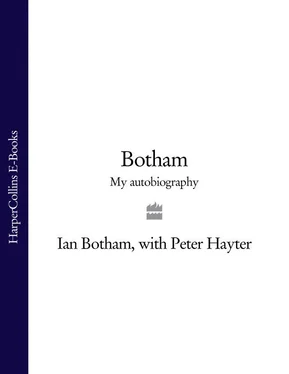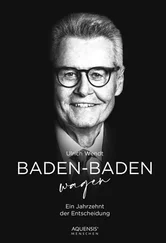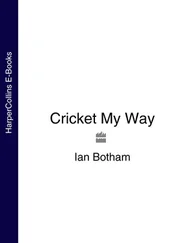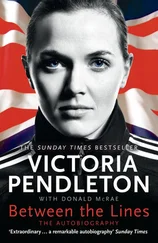| Onward Gower’s cricketers, |
From the swing of Botham, |
| Striving for a score, |
Aussie batsmen flee, |
| With our bats uplifted, |
On then Dexter’s cricketers, |
| We want more and more, |
On to victory, |
| Alderman the master, |
Border’s men shall quiver, |
| Represents the foe, |
At the shout Howzat!, |
| Forward into battle, |
Brothers lift your voices, |
| Down the pitch we go. |
Knock the kang’roos (sic) flat. |
| Onward Gower’s cricketers, |
Onward Dexter’s cricketers, |
| Striving for a score, |
We don’t mind the Waugh, |
| Don’t despair too early, |
Don’t despair too early, |
| The lion soon will roar. |
The lion soon will roar. |
|
Like a mighty army,Moves the Stewart squad,Brothers we’ll do anything,Not to upset Ian Todd,We are not divided,All one body we,For Richie, Illie, Tony and Jack,We’ll rewrite history. |
|
|
Onward Stewart’s cricketers,Indulgence we emplore (sic),Don’t despair too early,The lion soon will roar. |
|
| Jones and Boon may perish, |
Onward then the media, |
| Merv may rise and wane, |
Join our happy song, |
| Marsh won’t last till lunchtime, |
Blend with ours your voices, |
| Though Taylor may remain, |
In the triumph song, |
| Gates so big can never, |
Glory laud and honour, |
| ’Gainst Foster’s swerve prevail, |
To David G the King, |
| We have Gooch’s promise, |
Just this once, and hell why not, |
| And that cannot fail. |
Let us his praises sing. |
| Onward England’s cricketers, |
Onward Gower’s cricketers, |
| Getting off the floor, |
Our failures please ignore, |
| Don’t despair too early, |
Don’t despair too early, |
| The lion soon will roar. |
The lion soon will roar. |
Just before Ted resigned at the end of the 1993 season, and after his comments about England’s poor showing having something to do with the juxtaposition of Venus in relation to the other planets, he complained that every time he opened his mouth he was ‘harpooned and lampooned’ by the press. It was probably one of the simplest tasks of their journalistic careers.
I am still at a loss to explain exactly what his role in the England set-up was. All I know is that he frequently caused huge embarrassment to himself and others. It is hard to take seriously a chairman of selectors who calls his premier fast bowler Malcolm Devon and then gets all excited about the prospect of picking a batsman called Jimmy Cook, who just happens to be South African.
I recall the time that John Morris and Jonathan Agnew realised they had no chance of going on the winter tour to the West Indies in 1989/90. They had arrived at the Porter Tun Room in the City of London for the Cricket Writers’ Club annual dinner on the eve of the NatWest Final to which several past and present cricketers are invited as guests of the members. This is the time when, traditionally, most of the talk is concerned with who will be in the squads for upcoming winter tours. When Morris and Agnew set off for the evening they must have thought they might have been in with a squeak. After their conversation with Ted they knew they had another think coming. ‘Excuse me, chaps’, Ted called out as he was walking down Chiswell Street in search of the venue. ‘You two look like cricketers. Do you know where this dinner is taking place?’
These stories may be amusing in hindsight, but as a professional I find that kind of amateurish behaviour hard to tolerate. Ted might have been a fine player and a lovely guy socially, but as far as I was concerned he was taking money under false pretences, money that could have been diverted to many other projects that would have served the game better.
But my opinion of him is not just based on the obvious gaffes he committed at regular intervals. For it was during that disastrous series of 1989 that I found not only was Dexter a man I could not respect, he was also a man I simply could not rely on at all.
Our performances throughout that series were undistinguished to say the least. Looking back, we had started off on the wrong foot even before a ball had been bowled. After the 1988 winter tour to India had been called off due to the Indian Board of Control’s objection to the inclusion of players who had been on the first ‘rebel tour’ to South Africa in 1982, England were looking for a new captain. The original choice of Dexter and the manager Micky Stewart had been Mike Gatting, but when that was vetoed by the chairman of the TCCB, Ossie Wheatley, who for some reason felt that Gatt had still not served sufficient time for his supposed misdemeanours, they turned reluctantly to David Gower. That meant that England were going into a vital series with a captain who the selectors had not wanted in the first place. This caused problems right from the start.
When Gower won the toss prior to the first Test at Headingley, Ted stuck his oar in straight away by persuading him that the inclement weather forecast (which incidentally turned out to be wildly inaccurate) meant England should ask Australia to bat first. And they did, all day and all the next day, scoring 601 for seven declared before going on to win the match by 210 runs. When I returned to the side after injury for the third Test at Edgbaston, we were already two-down and no one was really sure who was running things – Gower, Stewart or Dexter, least of all the captain himself!
At the same time, one of the worst-kept secrets in modern cricket history was starting to seriously undermine team spirit. The South African cricket authorities, led by Dr Ali Bacher, were in England recruiting players for another ‘rebel tour’ to be played that winter while the Test side were due to take on the West Indies in the Caribbean. The dressing room, and everywhere else it seemed, was awash with rumours of just how much money was on offer, who was going and who was not. It had reached the stage where the England committee asked players to sign a declaration of availability for the winter tour.
I had been targeted by the South Africans in a big way and was interested in what they had to say. Of course I was intrigued by the possibility; I would be lying if I said otherwise. So when Bacher rang me after the Edgbaston Test, I was definitely listening. The cash on the table for signing up for two winter tours was staggering. Even when I called their bluff by asking for half a million pounds, the organizers did not seem unduly perturbed. Everyone understood that those who did go could more or less kiss goodbye to the thought of playing Test cricket again for a long time and, in my case, probably for ever. Financially, however, it would have made a lot of sense. Although I was also under no illusions as to what would have happened to existing and future commercial contracts, I knew that most of my Test playing career was behind rather than ahead of me and that, had I accepted the South African money the financial benefit to myself and my family would have been enormous.
By this time, Micky Stewart, on behalf of the England management, was doing his best to persuade me not to go. They wanted me in the West Indies, he said, and he pleaded with me to make myself available. They made it quite clear that if I did so, I was more or less guaranteed a place on the plane.
It took a lot of soul-searching to come to a decision. I discussed the situation fully with Kath and my solicitor and long-time friend Alan Herd and once again, as I had done in 1982, I came to the conclusion that I had more to lose than gain.
Читать дальше












